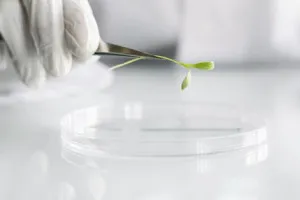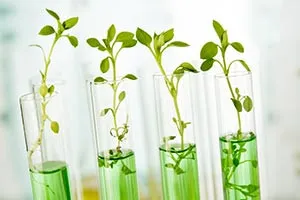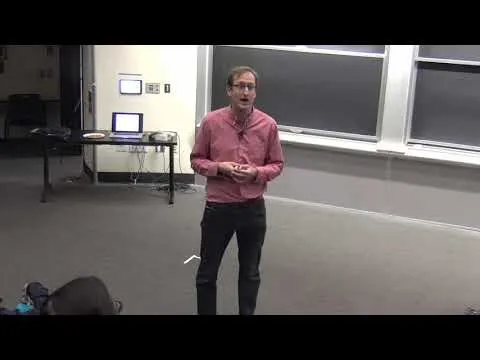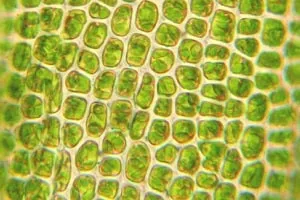
Introduction to Genetic Transformation in Plant Cells 
Discover the fascinating world of genetic transformation in plant cells with this free online course! Learn about the relevance and limitations of plant cell technology, as well as the functionalities and importance of bioreactors. Explore the applications of biotransformation and the necessary factors and conditions for its implementation. Dive into the types of immobilization and the advantages and disadvantages of plant cell immobilization. Gain knowledge on gene transfer methods, plasmids, and the T-DNA transfer process. Uncover various transformation techniques and understand concepts like cell aggregation, foaming, and wall growth. Don't miss out on this opportunity to expand your knowledge in biology, genetic engineering, and biotechnology. Enroll today and start your learning journey! ▼
ADVERTISEMENT
Course Feature
![]() Cost:
Cost:
Free
![]() Provider:
Provider:
Alison
![]() Certificate:
Certificate:
No Information
![]() Language:
Language:
English
Course Overview
❗The content presented here is sourced directly from Alison platform. For comprehensive course details, including enrollment information, simply click on the 'Go to class' link on our website.
Updated in [September 26th, 2023]
What does this course tell?
(Please note that the following overview content is from the original platform)
This free online course on; Introduction to Genetic Transformation in Plant Cells, explains the relevance of genetic transformations in plant cell cultures, the limitations of plant cell technology and the functionalities, operating strategies and importance of bioreactors. You will also learn about the applications of biotransformation, where you will see the factors and conditions necessary for it to be implemented.
Next, you will study the types of immobilization and the advantages and disadvantages of plant cell immobilization. The gene transfer methods and the notion of plasmids will be examined. You will also be able to describe the T-DNA transfer process and distinguish the structure of the Ti-plasmid from that of the T-DNA. The various transformation techniques will also be highlighted. Thereafter, you will learn about the concepts of cell aggregation, foaming and wall growth.
Finally, you will study the limitations of plant cell cultivation. You will see how disposable reactors are used for plant cell cultivation. The advantages of the biopesticide Azadiracthin over chemical pesticides, the approaches for its production, and some case studies that feature the success of the implementation of the strategies involved in plant cell technology will be discussed. This course will be of interest to anyone in the field of biology, genetic engineering, biotechnology, and any other related discipline. Why wait, start this course today!
We considered the value of this course from many aspects, and finally summarized it for you from two aspects: skills and knowledge, and the people who benefit from it:
(Please note that our content is optimized through artificial intelligence tools and carefully reviewed by our editorial staff.)
What skills and knowledge will you acquire during this course?During this course, learners will acquire the following skills and knowledge:
1. Understanding the relevance of genetic transformations in plant cell cultures.
2. Recognizing the limitations of plant cell technology and the functionalities of bioreactors.
3. Exploring the operating strategies and importance of bioreactors in genetic transformation.
4. Learning about the applications of biotransformation and the necessary factors and conditions for its implementation.
5. Studying the types of immobilization in plant cells and understanding their advantages and disadvantages.
6. Examining gene transfer methods and gaining knowledge about plasmids.
7. Describing the T-DNA transfer process and distinguishing the structure of the Ti-plasmid from that of the T-DNA.
8. Highlighting various transformation techniques used in plant cell technology.
9. Understanding the concepts of cell aggregation, foaming, and wall growth.
10. Recognizing the limitations of plant cell cultivation.
11. Exploring the use of disposable reactors for plant cell cultivation.
12. Understanding the advantages of the biopesticide Azadiracthin over chemical pesticides.
13. Learning about the approaches for the production of Azadiracthin.
14. Studying case studies that showcase the success of strategies involved in plant cell technology.
By completing this course, learners will gain a comprehensive understanding of genetic transformation in plant cells and its applications in various fields such as biology, genetic engineering, biotechnology, and related disciplines.
Who will benefit from this course?
This course on Introduction to Genetic Transformation in Plant Cells will benefit individuals in the field of biology, genetic engineering, biotechnology, and related disciplines. Specifically, it will be useful for:
1. Biologists: Biologists who are interested in understanding the process of genetic transformation in plant cells and its applications will find this course valuable. It will provide them with a comprehensive understanding of the relevance and limitations of plant cell technology, as well as the various transformation techniques.
2. Genetic Engineers: Genetic engineers working with plant cells will benefit from this course as it covers the gene transfer methods and the concept of plasmids. They will gain insights into the T-DNA transfer process and the structure of the Ti-plasmid, which are crucial for successful genetic transformation.
3. Biotechnologists: Professionals in the field of biotechnology will find this course beneficial as it explores the functionalities, operating strategies, and importance of bioreactors in plant cell cultures. They will also learn about the advantages and disadvantages of plant cell immobilization and the concepts of cell aggregation, foaming, and wall growth.
4. Researchers: Researchers involved in plant cell cultivation and studying the limitations of this technology will find this course informative. It covers the use of disposable reactors for plant cell cultivation and discusses the advantages of biopesticides over chemical pesticides, with a focus on the production of the biopesticide Azadiracthin.
Course Syllabus
Plant Cell Bioreactors
In this module, you will learn about the factors that influence the design of Plant Cell Bioreactors as well as their various modes of operation. Some case studies that feature the success of the implementation of the strategies involved in plant cell technology are also discussed.Plant Cell Culture
In this module, you will learn about the requirements for Plant Cell Cultivation and the processes involved in the production of compounds from Plant Cell Culture. You will see the effects of culture conditions on plant cells as well as the conditions that are essential for the cessation of exponential plant growth.Course assessment
Course Provider

Provider Alison's Stats at AZClass
Discussion and Reviews
0.0 (Based on 0 reviews)
Explore Similar Online Courses

Traditional Irish Sean-nos Singing Beginner 2

Understanding Plant Genetics

Python for Informatics: Exploring Information

Social Network Analysis

Introduction to Systematic Review and Meta-Analysis

The Analytics Edge

DCO042 - Python For Informatics

Causal Diagrams: Draw Your Assumptions Before Your Conclusions

Whole genome sequencing of bacterial genomes - tools and applications

12 Genetics 1 : Cell Division & Segregating Genetic Material
![[LIVE] Learn Genetic Engineering - Part 1: How does it work?](/ccsimg/dcs/img_tools/6b8f615b15bbd31a67f1880c9bd53dd0.webp)
[LIVE] Learn Genetic Engineering - Part 1: How does it work?


Start your review of Introduction to Genetic Transformation in Plant Cells